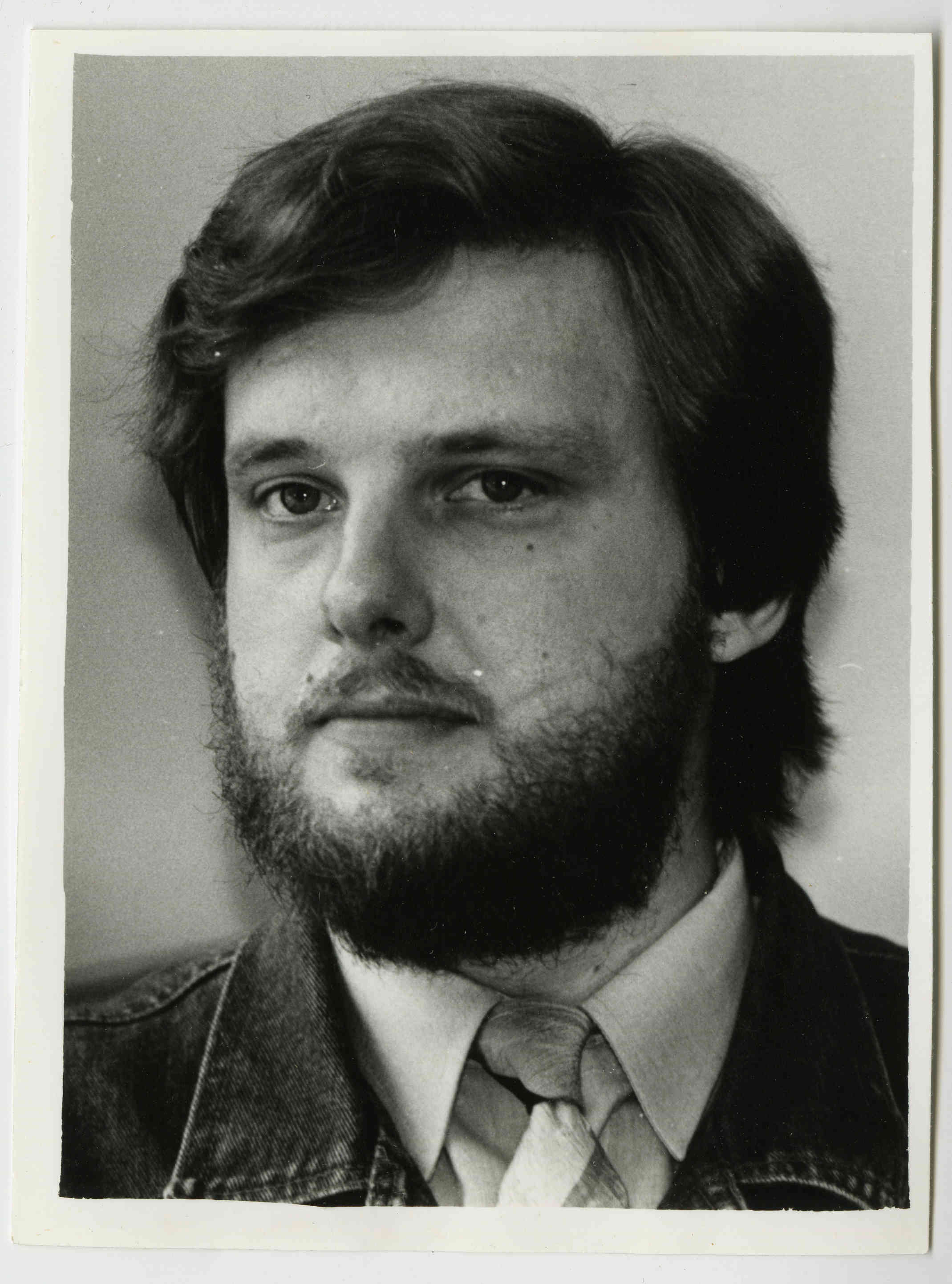
Toomas Haug
Toomas Haug (b. 1. V 1956) is a literary historian, critic and commentator.
He was born and educated in Tallinn; from 1974 to 1978 he studied Estonian language and literature at the Tallinn Pedagogical Institute. He worked as a senior researcher at the F. Tuglas Museum (1978-1983), from 1983 as an editor at the journal Looming, and from 1990 as its deputy editor-in-chief. He has also been a lecturer at the Estonian Institute of the Humanities and a cultural and political observer for Radio Free Europe. He belonged to the leadership of the Main Committee of Citizens of the Republic of Estonia (1989-1990), was a member of the Congress of Estonia (1990-1992) and leader of the press team of the Committee of Estonia. He has been a member of the Writers’ Union since 1985, and was on its board from 1986 to 1989 and 1992 to 1998.
As a critic he made his debut in Sirp ja Vasar in 1978. In addition to criticism he has published both general surveys and treatments of individual issues in Estonian literary history. Haug has paid attention to both well-known authors and lesser-known aspects. For example, he has dealt with the literary groupings Siuru and Tarapita, with the work of F. Tuglas, A.H. Tammsaare and J. Kross, as well as more recent literature, such as Andrus Kivirähk. He has had an interest in the so-called extreme areas of literature. He has a good knowledge of facts and skill at finding and selecting previously unknown or unconnected aspects. The style of his articles resembles that of essays and short stories. Generally Toomas Haug writes so-called ‘old-school’ treatments of literature, not framed in more or less fashionable theories.
He compiled a selection of Mart Mäger’s poetry, Taevasalla (Under the sky, 2010), the collections of essays Valik. 1. osa: esseid maailmakirjandusest (‘Selection, Part 1: Essays on World Literature’, 1987) and Valik. 3. osa: esseid maailmakirjandusest (‘Selection, Part 3: Essays on World Literature’, 1988), as well as a collection of articles, Valik, 2. osa: artikleid eestluse ajaloost (‘Selection, Part 2: Articles on the History of Estonian Identity’, 1988).
He has written a book of memoirs, Mööda Koidu tänavat (‘Along Koidu Street’, 2014), in which his experience of childhood frames the viewpoint of a grown man. Gentle humour and occasional irony have their place here, as in his articles about literature.
Haug’s short stories Ema hääl (‘Mother’s Voice’) and Mustamäe vanad (‘The Old Ones from Mustamäe’, which originally appeared in Looming, also appeared in the collections Eesti novell 2019 (The Estonian short story 2019) and Eesti novell 2020.
He won the Literature Endowment annual award in 2001 for his article ‘The triangle of Tallinn streets: a piece of uncanonised literary history’, in 2004 for the collection Troojamäe tõotus (‘The Pledge of Troojamäe’), in 2006 for the article ‘The death of A.H.T. in Africa’, and in 2010 for the collection Klassikute lahkumine (‘The Departure of the Classics’). In 2000 he was awarded the Order of the Coat of Arms, Class IV.
A. K. (Translated by C. M.)
Books in Estonian
Literary studies
Troojamäe tõotus: 33 kirjatööd. Tallinn: Eesti Keele Sihtasutus, 2004, 455 lk.
Klassikute lahkumine: 25 kirjatööd. Tallinn: Eesti Keele Sihtasutus, 2010, 415 lk.
Tagasi Troojamäele: 30 kirjatööd ja interluudium. Tallinn: Eesti Keele Sihtasutus, 2015, 487 lk.
Memoirs
Mööda Koidu tänavat: ülestähendusi varajasest ajast. Tallinn: Eesti Keele Sihtasutus, 2014, 108 lk.



